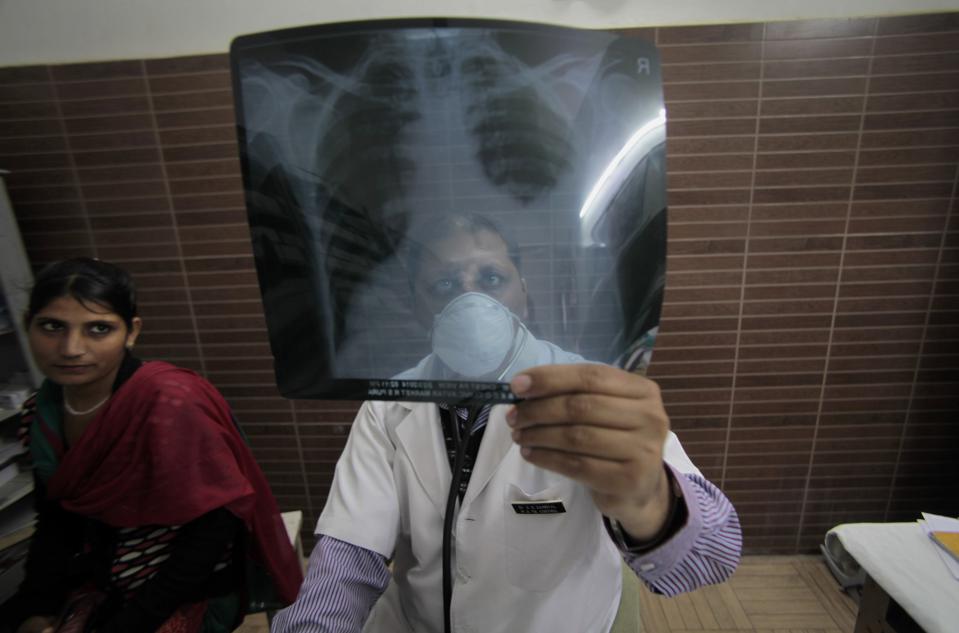The Covid-19 pandemic has likely had serious health implications for patients living with tuberculosis, suggests a new global survey conducted by several health advocacy and civil-led groups.
Seven out of ten healthcare workers who participated in the survey reported a decrease in the number of people coming to health facilities for tuberculosis testing. “This is really worrying; if we can’t reach people with tuberculosis, the risk of community transmission will increase and people who need treatment will be left behind,” said Robyn Waite, policy and advocacy manager at Results Canada, one of the groups which led the initiative.
Around 1,000 tuberculosis stakeholders from 89 countries participated in the online survey conducted between May 22 and June 2, 2020. The findings were released on September 15. Professor Madhukar Pai, director at McGill International TB Centre, Canada, which provided statistical and administrative support for the survey said it was impossible to do random sampling which could have given more accurate and robust answers, amidst an on-going pandemic. “The (survey) results should provide some broad trends and give us a sense of what people on the ground are anxious about,” said Pai.
India, which has the world’s highest burden of tuberculosis and records around 2.6 million new cases each year, has seen around 50% drop in notifications of new cases since March when the government announced a complete nation-wide lockdown. This led to a major disruption in health services including tuberculosis detection and treatment. Around 21 out of the 58 Indian tuberculosis patients said in the survey that the health facilities they normally visit were closed. Interruptions in treatment can lead to drug resistance and increase the chances of death. Community transmission of drug resistant forms of infections can be a huge public health hazard.
A modelling study conducted by researchers at Imperial College, London, found that over the next 5 years, deaths due to HIV, tuberculosis and malaria could increase by up to 10%, 20%, and 36%, respectively in countries with high burden of these diseases, compared with if there was no Covid-19 pandemic.’ These findings were published in the scientific journal The Lancet in July. Another modeling analysis released by the Stop TB Partnership, a group of international organizations, in May had found that “under a three-month lockdown and a protracted 10-month restoration of services, the world could see an additional 6.3 million cases between 2020 and 2025 and an additional 1.4 million tuberculosis deaths during that same period.”
“Today, governments face a torturous path, navigating between the imminent disaster of Covid-19 and the long-running plague of tuberculosis. But choosing to ignore TB again would erase at least half a decade of hard-earned progress against the world’s most deadly infection and make millions more people sick,” Dr Lucica Ditiu, executive director of the Stop TB Partnership said in a press release.
Experts are worried diversion of tuberculosis resources to manage the Covid-19 situation will have dire consequences on tuberculosis patients. A report released by the Global Fund this week found: “Molecular diagnostic instruments used to diagnose TB are being diverted to test for COVID-19. This has contributed to the reduced effectiveness of programs to reach ‘missing’ TB patients.”
Over half of the health advocates across the globe said in the survey that funds for tuberculosis were being diverted to the Covid-19 pandemic. Blessina Kumar, chief executive officer of Global Coalition of TB Activists, said, “We need to watch out that we don’t address Covid at the cost of other diseases.”






